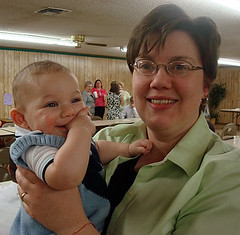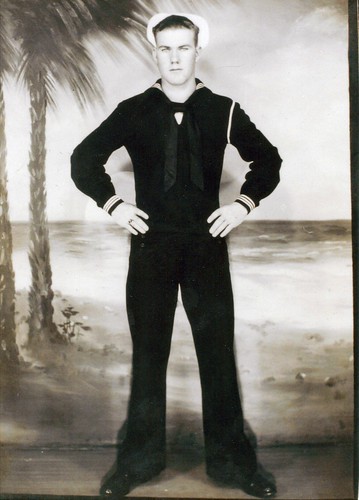I still have plans to be a jane come lately to the
CCCarnival. But, until then, I feel obligated to make at least one post before the month ends. Here are some highlights from July 2008. Lest we forget.
1. We closed on the house! Yes, the big purchase I have been alluding to was our house, which we've been renting since we moved to Columbia four years ago. For various reasons, from contract to close was drawn out for three months. It was, as I told one friend, the worst experience of my life. Maybe that was an exaggeration, but it was close. But now we have the title! To our house with purple shutters and an attic painted like the sky.
2. By the end of the week, I will have taught a whole class this month. Like the past two summers, I taught Intro to Women's Literature. The students do a lot of blogging and two very simple new media productions. It's a good time.
3. C and I went to Carbondale before the session started, back at the very beginning of July. We were there for just one night and didn't get to see everyone we would have liked to see. Our main purpose in visiting was to have dinner with K, who was the chair who hired me. He's leaving to be a chair out west.
4. I went on a silent retreat over the weekend. Ah. Grounded again.
5. I finally finished the introduction for my book (although I still want to change a couple of small things).
6. I ate the best cookie in the world at
Uprise. Ginger chocolate chunk. Two of my very favorite flavors, together.
7. Which reminds me: I've been spending a lot of time at Uprise. It's a pretty good place to write, despite the really bad design choice of putting electrical outlets UNDER the benches. It means there's no graceful way to plug in one's laptop. None at all.
8. I am mourning the
loss of Scrabulous on Facebook. Sure, there are other word games, but no other has the nice leisurely pace of a game of Scrabble between two remote friends.
9. Hansel, my brown tabby, came down with a urinary tract obstruction. This is one of the things I have always feared, that my cat would get blocked. It's very dangerous--can lead to death within 24-48 hours because of the toxic build-up. We rushed him to the emergency room at the vet hospital at midnight last week. He's back home. (And was he ever happy to get home! Little can match the happiness of a cat back from the hospital. As C. said, being in the hospital must seem like an alien abduction. The probes, the lights, the strange beings. And to suddenly be rescued from that! What joy!)But apparently he's at a high risk for getting obstructed again, especially for the next two weeks. He's currently enjoying an all wet food diet to help keep him hydrated and diluted.
10. I am so so tired. Bone tired. Many high stress situations over the last few months. Next week I'm going away. Although it's a curriculum workshop, it includes yoga everyday. So I have some high hopes.







